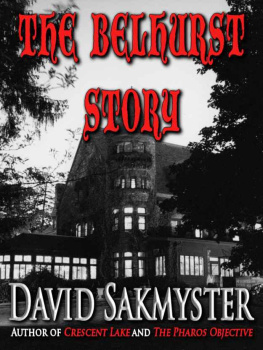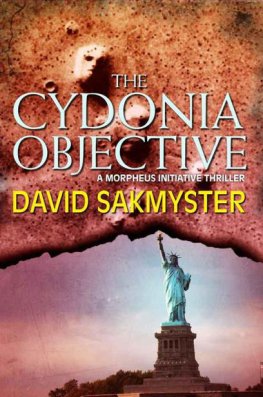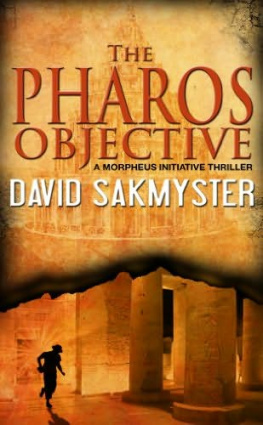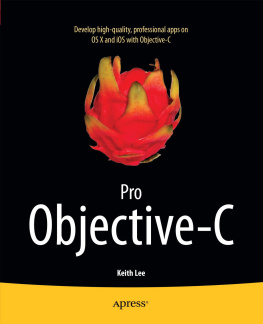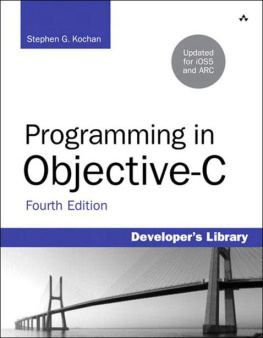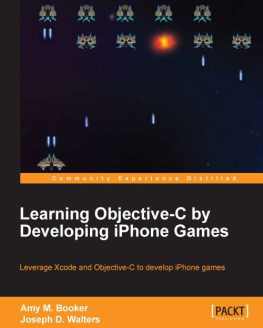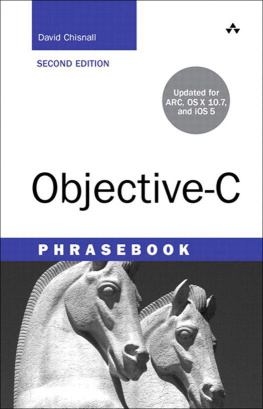David Sakmyster - The Pharos Objective
Here you can read online David Sakmyster - The Pharos Objective full text of the book (entire story) in english for free. Download pdf and epub, get meaning, cover and reviews about this ebook. genre: Adventure. Description of the work, (preface) as well as reviews are available. Best literature library LitArk.com created for fans of good reading and offers a wide selection of genres:
Romance novel
Science fiction
Adventure
Detective
Science
History
Home and family
Prose
Art
Politics
Computer
Non-fiction
Religion
Business
Children
Humor
Choose a favorite category and find really read worthwhile books. Enjoy immersion in the world of imagination, feel the emotions of the characters or learn something new for yourself, make an fascinating discovery.

- Book:The Pharos Objective
- Author:
- Genre:
- Rating:3 / 5
- Favourites:Add to favourites
- Your mark:
- 60
- 1
- 2
- 3
- 4
- 5
The Pharos Objective: summary, description and annotation
We offer to read an annotation, description, summary or preface (depends on what the author of the book "The Pharos Objective" wrote himself). If you haven't found the necessary information about the book — write in the comments, we will try to find it.
The Pharos Objective — read online for free the complete book (whole text) full work
Below is the text of the book, divided by pages. System saving the place of the last page read, allows you to conveniently read the book "The Pharos Objective" online for free, without having to search again every time where you left off. Put a bookmark, and you can go to the page where you finished reading at any time.
Font size:
Interval:
Bookmark:
David Sakmyster
The Pharos Objective
PROLOGUE
Pharos Island, Alexandria, Egypt-861 A.D.
One hundred sleek Arabian horses and their dark riders, carrying torches and armed with hammers, pikes and rusty axes, thundered across the wave-battered promontory toward the lighthouse. The riders roared past Dakhil, who stood upon the crumbling red granite stairs between two colossal statues with missing limbs and fractured torsos. In the shadow of the towering Pharos Lighthouse, Dakhil imagined that the sun had been anchored permanently behind the massive structure, unable to escape its dominion.
He trembled as the riders headed straight into the arched doorway-the toothless, yawning mouth of the Pharos-and he shivered as the Mediterranean winds tugged at his black robes and snatched at his turban. The ancient lighthouse stood in silent indifference, and by a trick of light and shadow it appeared to be expanding, calmly breathing in the Muslim riders, inhaling men and horses alike.
I hope you have been true to me, said a voice at his shoulder. Dakhil turned to face Barraq Najdeelen, caliph of Alexandria and commander of the military forces occupying the city.
Alexandria had fallen to the Muslims two hundred years earlier with little resistance from the Christians. Once the jewel of the Roman-Egyptian era, an unparalleled center of wealth and knowledge, the gods had all but abandoned Alexandria; and now the once-proud cosmopolitan city was a mere strategic port, valued only for its access to the rich interior trade routes. And of course, for its military potential. This harbor, well-protected by jagged reefs and low-lying shoals, had seen fleet after fleet sail against Constantinople while enjoying the defense of the marvelous Pharos Lighthouse.
Barraq knew his enemy would eventually seek to recapture the city. The infidel King Michael despises the Pharos. It is a sign of our strength and a looming reminder of Christian impotence. He breathed in the sea air, and his long, oily beard whipped over his shoulder.
I have spoken only the truth, Dakhil said, nervously taking a step back. High above, the great mirror, a twenty-foot disc of reflective metal, scratched and clouded with age, winked at him, threatening to expose his lies.
Barraq tilted his head back. You have been in Constantinople two years, my friend. Perhaps they found you out as my spy, and in exchange for your life you offered to come back here with malicious rumors?
No, My Lord. I am ever your loyal servant.
We shall see. Barraq let his fingers drop to his belt and carefully trace the hilt of his scimitar. This treasure-you do not have further specifics?
My Lord? Dakhil trembled again, and wished he could step out of the shadow of the lighthouse. All the way up its precipitous walls, the crumbling statues of the ancient gods of Egypt, Greece and Rome pointed accusingly at him while the tower itself appeared to lean over for a closer look.
What is it exactly? The men speak of Alexander the Greats lost hoard. Is it gold and silver? Jewels beyond compare?
More valuable still, Dakhil said, and again offered a prayer to all the gods that were ever dreamed up by men, hoping the legends were true. The timing for this had to be perfect. He had inherited certain knowledge, information that was beyond the understanding of popes, kings or caliphs. Information, he had been told, that must remain hidden until directed otherwise.
But Dakhil was not one for patience. The title of Keeper did not suit him. Life was short, and who knew if the world would continue to exist after his own breath expired? So he had decided to release just a hint of what he knew, disguised as a rumor from the enemys camp, hoping to excite the caliphs men to do what he himself could not. Brute force would surely succeed where patience had failed.
What could be more valuable? Barraq asked. Suspicion flashed in his eyes.
Just then, a muffled cry reached their ears from above. A shout, then a horrifying scream. Barraq and Dakhil looked up and shrank back, although they were in no danger. The huge mirror had been wrenched free of its mounts in the zeal of the treasure-seekers and rolled out one of the porticos and over the edge hundreds of feet up. It took two men with it, rotating end over end as it plummeted from the top spire and slammed onto a ledge, crushing one man and dislodging a hail of stone and debris before it bounced off and plunged another two hundred feet. Finally, upon the limestone blocks of the courtyard, it shattered in an eruption of glass and metal, releasing a tortured cry-a lament for the end of its twelve-hundred-year existence.
Dakhil cursed. Why did they go up? That was not the way. The secret tunnels the chambers are below the foundation!
Barraq waved away his protests. I instructed my men to be thorough.
Fools, Dakhil whispered. He now began to fear that the caliphs men were not up to the task.
Barraq withdrew a stick of dried wheat from his saddlebag and chewed its tip. Tell me, Dakhil, what reward would you ask if we find this treasure?
Still ruing the loss of such a mighty artifact, the great mirror that had reflected the sights of a millennium, Dakhil said, I would ask, My Lord, for but one item.
One only?
Yes, if I may have first pick. A little thing, of no use to anyone.
Barraq studied him. If no one else has use for it, why would you?
Dakhil shrugged. To own something from a lost age such a possession would be priceless. He hoped his answer would satisfy the caliph. Of course, Dakhil knew exactly what he wanted: the most powerful item in the collection. He had done his research, he had memorized the catalog, he knew right where it was. The trick would be to find it and take it before the wrath of the soldiers and the caliph descended on him.
However, if the legends were correct and the lighthouse defenses truly existed as rumored, his job might be easier. He felt the metal edge of his sword against his hip, and the two daggers in his boots chafed against his skin.
I shall have to be quick.
Barraq made a sound like a mocking laugh, but before he could speak, an ominous roar came from the lighthouse. This time, it was accompanied by a rumbling under the earth. The tower itself began to tremble and a great dust cloud burst from the doorway and hissed from the hundred windows and cracks in the lower section.
Dakhil started to run toward the entrance with Barraq close behind. They climbed the flight of eroded stairs, raced past toppled statues and across an overgrown courtyard toward the door, where three men just now emerged, black-faced and covered with dust. Coughing, they dropped to their knees, one man holding up his hand. Blood oozed from his ears and his nose, one eye ruined.
Gone, gone! he cried, even as his comrades fell, spitting up blood and then lying still.
Barraq grabbed the survivor and shook him to his feet. Speak, fool! What happened?
A door- He coughed out blood, speckling Barraqs face. -strange signs upon it twisting serpents and a staff. We could not open it. We three returned to seek your advice, to call for the Magi. But the others they would not wait.
Barraq shook him again, harder. What happened?
Hammers! I heard hammers striking the door, then-he gasped and clawed at Barraqs face-they screamed, Trap! Its a trap! The walls shook, the floor gave way. Then the sound-another coughing fit seized his body-of a roaring wave.
Barraq slowly turned to Dakhil as he let the man drop to the ground. A trap he echoed, just as other men began streaming out of the doorway.
Dakhil reached for his sword, and they fell upon him before it cleared the sheath.
The seventeen men who survived had been higher up in the tower. The other eighty-three, including their horses, had, by some unknown device, been swept out into the harbor.
Font size:
Interval:
Bookmark:
Similar books «The Pharos Objective»
Look at similar books to The Pharos Objective. We have selected literature similar in name and meaning in the hope of providing readers with more options to find new, interesting, not yet read works.
Discussion, reviews of the book The Pharos Objective and just readers' own opinions. Leave your comments, write what you think about the work, its meaning or the main characters. Specify what exactly you liked and what you didn't like, and why you think so.

